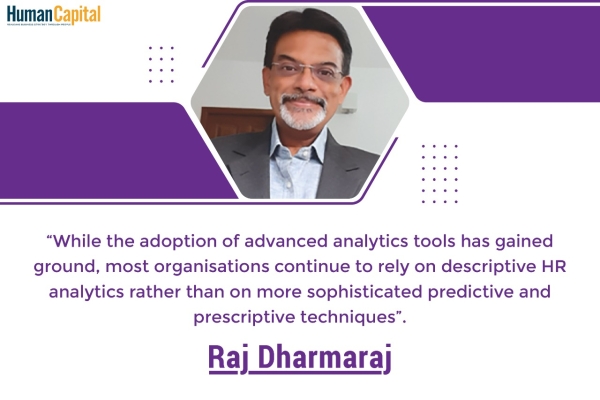In her maiden budget speech, Nirmala Sitharaman, the Indian Finance Minister, laid significant emphasis on skill development. This comes as a welcome sign since academic learnings are hardly applicable in one's professional life. Companies are resorting to training the recruits, an unwanted investment in man-hours and money. The invasion of technology into our lives has, however, 'realigned' the professional arena. Today, companies are scouting for students who are skill-ready and adaptable to technology-enabled disruptions.
Colleges are mulling these changes and are modifying their curriculum to inculcate skilling among their students. New specialisations, keeping abreast with the technological acceptances have mushroomed in the last few years. Blockchain, Internet of Things, Big Data, AI, etc., are some of the most sought-after fields today, and these were non-existent five years ago. Institutions foresee a significant demand for these topics and are hence empowering students to be a step ahead. Even the legacy programmes like Marketing, HR, etc. are being upgraded in accordance with the changing dynamics of consumer requirements and technology.
The avenues for skill development can be classified as under: -
Gaining technical expertise: The notion that one has to acquire top grading in order to land a job is falling apart. Alternatively, companies like to recruit students who have technical expertise. They are scouting for recruits with a focused mindset. In addition to clearing the exams, such students would pursue other avenues to gain more knowledge on the subject matter. Thus, collecting certifications during one's studies has become the norm. In fact, among the top institutions, it is a way to better one's profile in comparison to the rest of the class. On the other hand, companies are partnering with institutions to prepare specialised training programmes for their employees. These programmes are essential to keep these companies relevant, given the fast-paced changes in their industry. MOOCs and Online Courses are gaining rapid traction.
Investing in Behavioural readiness: Students are generally unaware of the ground realities of various job profiles. E.g., a certain student might want to become a Marketing Manager, but may not really have the skillset to excel in marketing. In such cases, mock projects can help a student understand the ground realities. Institutes like EDHEC collaborate with many functional organisations to train their students in the finer qualities of various job profiles. The students work on real-life case studies offered by the companies, who roleplay as clients. Such an approach makes the students aware of the behavioural challenges within their roles, in addition to the need of technical expertise.
Personal Branding: Today's students are trained to think of building a career rather than a job. It is a classic case of long-term vs short-term approach. This has put students on a path of personal branding instead of merely making ends meet. Colleges organise psychometric tests and interviews with career coaches to help students define their long-term goals. Alumni Associations of leading B-Schools mentor the Alumni in career mapping even several years after they have graduated.
The crux of the matter is that students need tools that enable them to adapt, survive, and succeed in today's disruptive world. And institutes are bracing themselves to keep pace with these changes. Traditional teaching has given way to experiential learning. Such students who work towards an extended self-development plan will succeed!
Are you comfortable working with dispersed colleagues?
Trending
-
SBI General Insurance Launches Digital Health Campaign
-
CredR Rolls Out 'Life Happens' Leave For Its Employees
-
Meesho Announces 30-Week Gender-Neutral Parental Leave Policy
-
Microsoft Unveils Tech Resilience Curriculum To Foster An Inclusive Future
-
60% Indian Professionals Looking For Job Change Due To COVID: Survey
-
SpringPeople And Siemens Collaborate For Digital Transformation Push
-
86% Professionals Believe Hybrid Work Is Essential For Work Life Balance: Report
-
Almost 1 In Every 3 People's Personal Life Affected Due To Work Stress
-
Meesho Rolls Out Reset And Recharge Policy For Employees
-
80% Of Talent Leaders & Academics Say Pandemic Changed Skill Needs For Youth: Report
-
Hero Electric Rolls Out 'Hero Care' Program For Employees
-
Human Capital In Collaboration With ASSOCHAM Hosts Virtual Conference
-
IKEA India, Tata STRIVE Collaborate To Create Employability And Entrepreneurship Opportunities
-
SAP India, Microsoft Launch Tech Skilling Program for Young Women
-
DXC Technology, NASSCOM Collaborate For Employability Skills Program
-
Lenskart To Hire Over 2000 Employees Across India By 2022
-
Mindtree Launches Learn-and-Earn Program
-
Tata AIA Extends 'Raksha Ka Teeka' To Its Employees
-
Swadesh Behera Is The New CPO Of Titan
-
NetConnect Global Plans To Recruit 5000 Tech Professionals In India
-
Hubhopper Plans To Hire 60% Of Indian Podcasters By 2022
-
Corporate India Needs More Women In Leadership Roles: Report
-
Aon to Invest $30 Million and Create 10,000 Apprenticeships by 2030
-
Tech Mahindra Launches ‘Gift a Career’ Initiative for Upskilling of Youth
-
40% Women Prefer Flexible Working Options in Post-COVID World: Survey
-
3 out of 4 companies believe they can effectively hire employees virtually: Report
-
Vodafone , CGI and NASSCOM Foundation launch digital skills platform
-
Odisha: Bank, postal employees to deliver cash for elderly, differently-abled persons
-
Skill India launches AI-based digital platform for "Skilled Workforce"
-
Hiring activity declines 6.73% in first quarter: Survey
-
70% startups impacted by COVID-19 pandemic
-
Bajaj Allianz Life ropes in Santanu Banerjee as CHRO
-
Over 70 Percent MSMEs look at cutting jobs to sustain businesses
-
93 Per Cent employees stressed about returning to office post-lockdown
-
Johnson & Johnson India announces family benefits for same gender partners
-
Indian firms turning friendly towards working mothers
-
Welspun India names Rajendra Mehta as new CHRO
-
Wipro partners with NASSCOM to launch Future Skills platform



Human Capital is niche media organisation for HR and Corporate. Our aim is to create an outstanding user experience for all our clients, readers, employers and employees through inspiring, industry-leading content pieces in the form of case studies, analysis, expert reports, authored articles and blogs. We cover topics such as talent acquisition, learning and development, diversity and inclusion, leadership, compensation, recruitment and many more.
Subscribe Now












































Comment